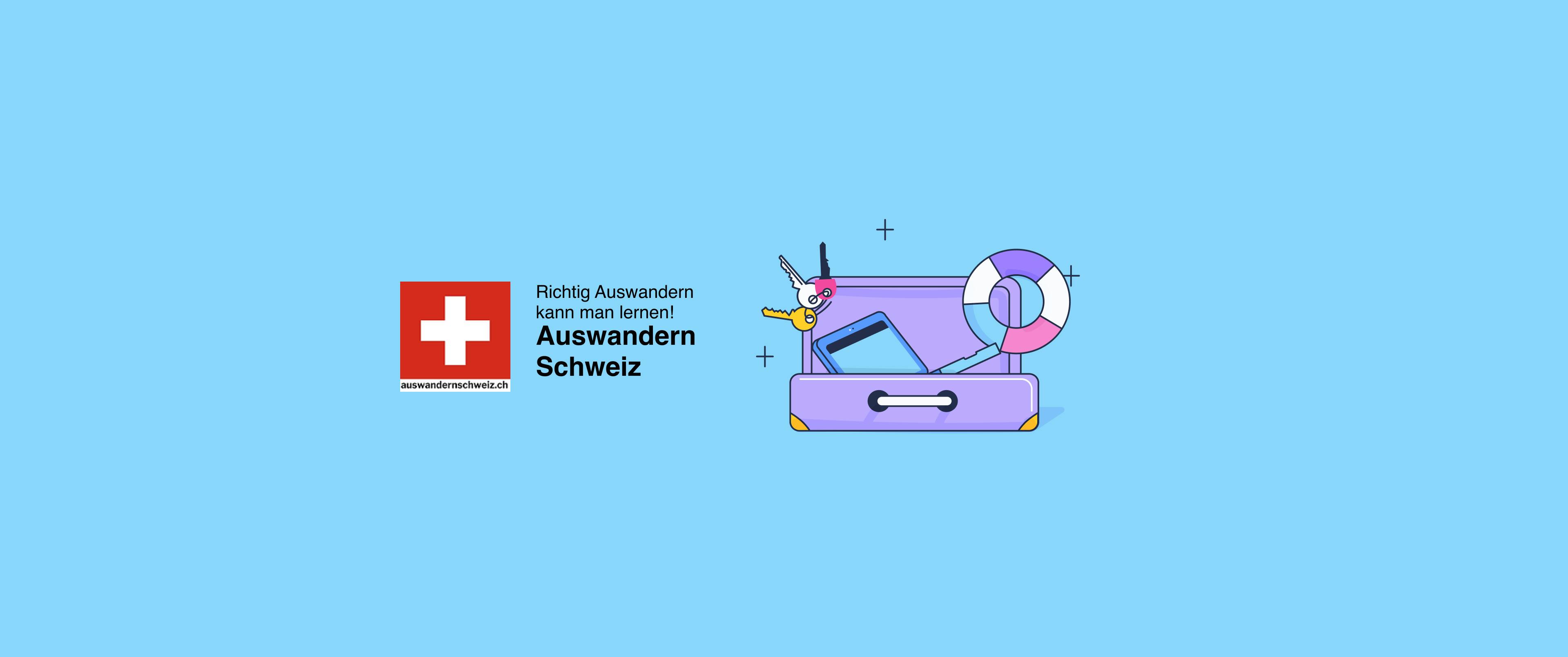Investing as an Expat
If Switzerland is known for one thing, it is for its banks and its wealth. This makes it an attractive country for emigrants. Many are looking for a financially stable future and want to close their pension gap. Switzerland offers an option. In this article, you will learn important information about investing as an expat.
This article was created in collaboration with our financial blogger Roman from Auswandernschweiz. In his blog, he shares his experiences of travelling and emigrating to Switzerland.
Three aspects for expats for investing in Switzerland
The Swiss pension system
One of the biggest differences between Switzerland and Germany is the pension system. In Switzerland, the pension system consists of three pillars: state, occupational and private pensions. Each of these pillars fulfils a specific task to ensure financial security in old age. The first pillar serves to secure your livelihood. The second pillar contributes to the continuation of the accustomed standard of living. The third pillar, private pension provision, serves to close any gaps in income and to utilise additional tax benefits.
Pillar 1: The state benefits:
The first pillar of the Swiss pension system consists of old-age, survivors' and disability insurance (AHV/IV) and supplementary benefits (EL). The aim of AHV/IV is to provide financial security for insured persons in old age, in the event of death and disability. Supplementary benefits are intended to secure financial existence if other state benefits or personal income are insufficient. In principle, everyone who works and lives in Switzerland is covered by the first pillar.
Pillar 2: Occupational provision:
The second pillar of the Swiss pension system, also known as the occupational pension scheme (BVG) or pension fund, is intended to supplement AHV/IV benefits in the event of old age, disability and death. Its aim is to enable employees to maintain their accustomed standard of living. All employees whose income exceeds the annual salary subject to AHV contributions (BVG minimum salary) are insured via the pension fund chosen by the employer and the automatic BVG deduction.
Pillar 3: Private benefits:
The third pillar of the Swiss pension system is a purely voluntary supplement to the existing pillars. The main aim is to close pension gaps and cover individual additional needs in old age. Within the third pillar, a distinction is made between tied pension provision 3a and unrestricted pension provision 3b. In the 3rd pillar, everyone is responsible for their own savings and contributions. Another incentive for paying into pillar 3a is the tax advantage.
Purchase into the pension fund
Buying into the pension fund is another option for closing pension gaps. This can also be done retrospectively. However, it is advisable to seek advice and calculate carefully whether this really makes sense. In principle, it makes more sense to utilise the maximum Pillar 3a amount first. The return on the pension fund should also be more attractive than other investment options. In my opinion, what the pension fund can do, you can also do yourself with the right investment strategy. After all, they only invest your money in the financial market.
When is it worth buying into the pension fund?
- When there is a contribution gap. Immigrants in particular have this gap, as they only have a Swiss salary level from the time they move here and pay into the system here.
- Purchases are often only worthwhile in old age, as your salary level is then higher and the return is usually better. There is also a 3-year blocking period for drawing from the pension fund. For this reason, the years between 50 and 55 are often the best time to pay in.
- You should definitely carry out a risk check on your pension fund before you pay into it. The ratio should be 100%, as this ensures that your pension fund has enough capital to cover its obligations.
- The return should be better than with other investments. So be sure to compare alternatives.
- Make sure that your capital is passed on to your surviving dependants in the event of your death or that a survivor's pension is paid out.
A property in Switzerland
Many people recommend buying a house in Switzerland. It is also possible to save on taxes there. This is because many Swiss people always have debts in order to optimise their assets. Sounds strange? Then ask an expert why they do it. Property is comparatively expensive in Switzerland and there are additional costs even after the purchase. It should therefore be carefully considered whether this step is worthwhile. However, a property shouldn't be completely out of the question.
Property as an immigrant? The problems.
- You don't yet know the Swiss property market inside out and should first analyse it at your leisure.
- You need 20% of your own capital. With standard property prices of one million per flat, that's already 200,000 francs. You have to save that first.
- The housing costs should not be more than 1/3 of your income. In our example, that would be 150,000 francs a year that you have to earn. As with a million, 80% is borrowed.
- A property binds you in the long term. Depending on your job security, this can be a decisive factor.
- Selling the property takes forever.
Conclusion
Basically, you have to invest. Whether in your education, your family or the financial market, you need to create a cushion. Diversify broadly and put something aside every month. You will feel more secure and freer and see completely new options in your life. If you want to learn more about this topic, take a look at the other articles on the Selma learning platform.
If you have any further questions, please feel free to contact the Selma Finance team or leave me a comment on my blog Auswandernschweiz!
Roman
Roman shares his experiences of moving to Switzerland on his blog. He also produces professional videos on various topics on YouTube. 🚚
Blog